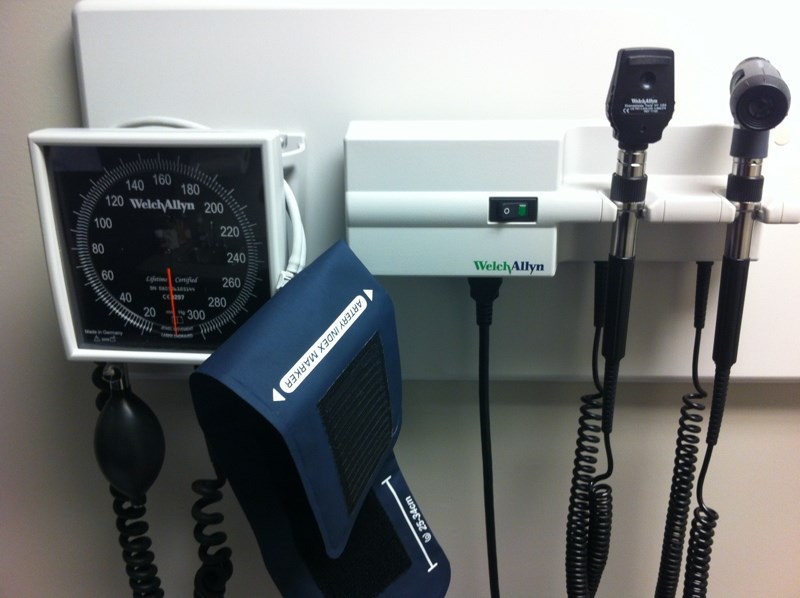The hammering that B.C. municipalities are going to endure by way of the NDP government’s employer health tax occupied the legislature Monday, but the woman wielding the hammer was unmoved.
Finance Minister Carole James faced down assorted B.C. Liberal MLAs protesting the impact the new tax is going to have on homeowners. Various cities have been quick to confirm that the provincial move virtually guarantees local tax hikes to pay the new bill. The average property tax hike will likely be one or two percentage points higher than usual, to cover the new employer health tax.
Local governments, along with all other employers, are facing the classic good news-bad news proposition. The good news is that the Medical Services Plan premiums most of them pay on behalf of employees have been cut and are going to be eliminated, which saves them money.
The bad news is that the province will make up the shortfall with a payroll tax on all but the smallest employers.
A Union of B.C. Municipalities survey released last week confirms that for most larger towns and cities, the bad news outweighs the good news — they’ll be paying more in health tax than they ever did covering MSP premiums. And there’s much worse news — there’s a double-whammy coming next year, when employers will pay both the MSP premiums and the employer health tax. As the UBCM put it, the 50 per cent cut in MSP premiums this year gave the municipalities a big break. But the relief was “effectively eliminated” by the introduction of the new tax.
Next year’s doubling up, when they’ll pay MSP premiums and the health tax at the same time, will create an extraordinary single year in which costs will more than quadruple. There’s also a compounding effect — regional districts are in the same boat and get much of their funding by requisitioning municipalities. So that take could increase as well.
It compounds in other ways. Employers in municipalities like Saanich will pay the employer health tax directly for their businesses, then pay higher property taxes as well to cover the municipality’s employer health tax.
The whole premise of doing away with MSP premiums was based on how unfair it was to charge a flat rate on everyone regardless of income. Concern about how regressive it was prompted so many exemptions that only about half the population now pays the premiums, which have just one more year to run.
Maybe that’s why the Union of B.C. Municipalities pointed out that property taxes are just as regressive.
The property tax provides stability, but “it does not fairly distribute costs across income levels, placing an undue share on lower and middle-income British Columbians.”
In other words, the province has indirectly moved a chunk of its health care funding to a system that’s just as unfair as the one they have abandoned.
As far as the employer health tax on municipalities is concerned, they’ve moved it to an arena (home ownership) where there is already a big fight underway about vacancy, speculation and school tax hikes.
All of which makes the idea that the NDP is launching a tax war on homeowners something worth pursuing for the opposition Liberals. Which they did Monday. They said the flow-through effect of the employer health tax on municipalities breaks the NDP campaign promises, none of which mentioned a health tax.
James said individuals, at least those who paid their own $900 a year premiums, will still be further ahead, “even if a municipality decides that they’re going to look at a small increase to address this. … We are addressing affordability. Municipalities will make the decisions that they need to make.”
James said “it’s a good deal.”
B.C. Liberal Leader Andrew Wilkinson said James is disconnected from reality.
There are way too many variables to figure out if homeowners will be better off paying higher property taxes rather than MSP premiums (assuming they paid them themselves). But it’s safe to conclude the tax shift has brought a lot more people into the argument. And they’ll be getting into it knowing there are also fights about the real estate speculation tax, income tax hikes and carbon tax increases.
The opposition will be dwelling on those fronts as well, and pointing out how mute the NDP caucus has been in acknowledging the fights breaking out.



